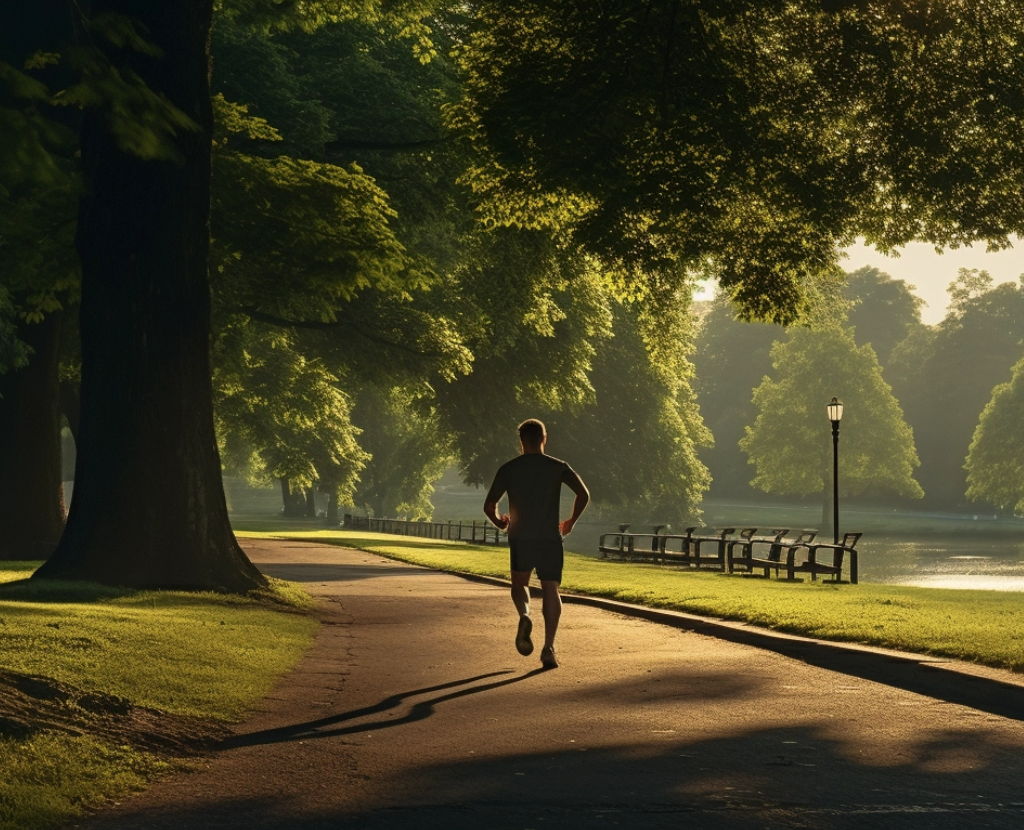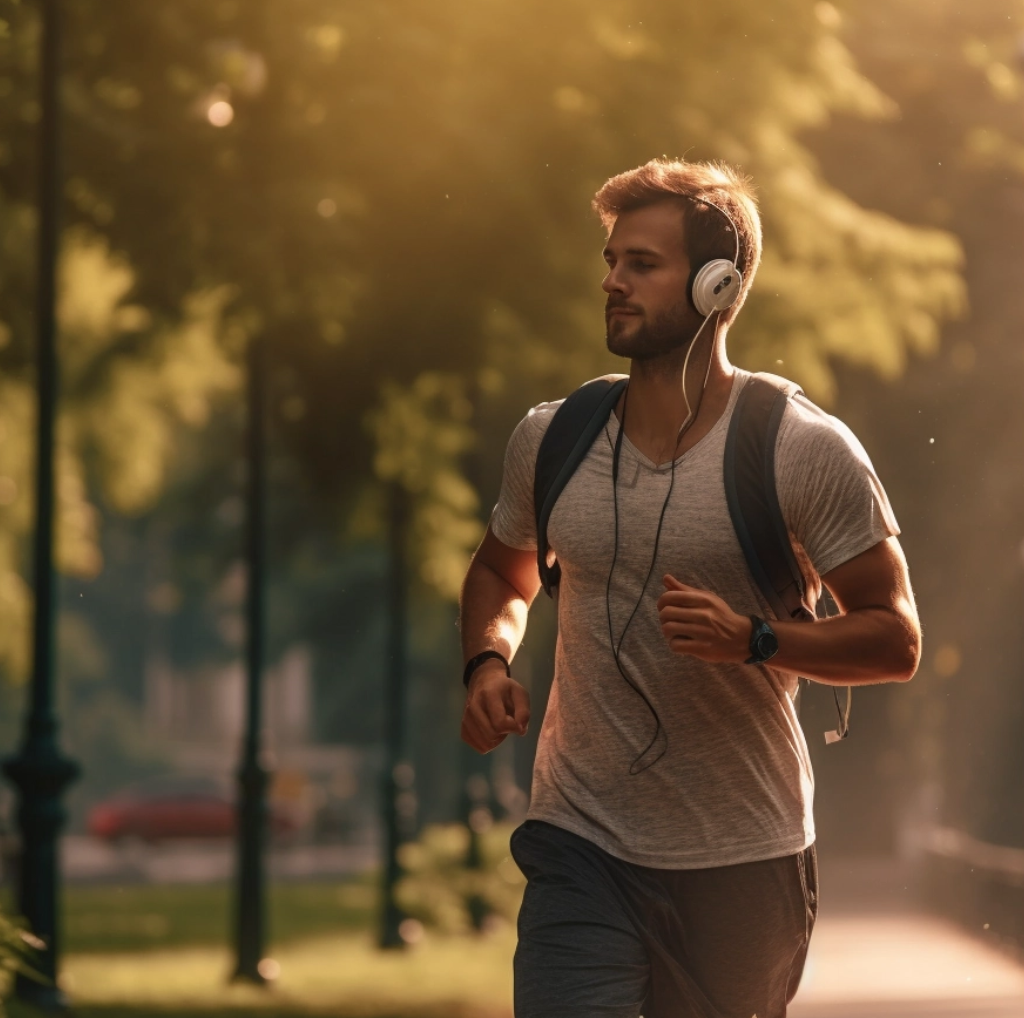Do you rise with the sun, lacing up your shoes for a brisk pre-dawn walk, or do you unwind after a long day with a leisurely stroll as the stars emerge? The age-old debate of morning vs. evening walks ignites heated discussions among fitness enthusiasts. While both options offer undeniable health benefits, the question of which reigns supreme for overall well-being remains unanswered. Let’s embark on a journey to explore the pros and cons of each, unraveling the mysteries behind the perfect stride time.
First, consider the early risers: Imagine yourself greeted by the chirping of birds as you invigorate your senses with a walk under the golden rays of sunrise. Advocates swear by the energizing effect of morning walks, claiming they kickstart your metabolism and sharpen your mind for the day ahead. But are these claims merely wishful thinking, or is there scientific evidence to support them?
On the other hand, evening walkers paint a different picture. They envision themselves unwinding amidst the calming twilight, letting go of daily stress with each step. Studies suggest that evening walks can induce better sleep and even offer a chance to reconnect with loved ones through shared strolls. But could the lure of cozy evenings and screen time overshadow the potential benefits?
This blog post delves deep into the fascinating world of morning and evening walks. We’ll weigh the evidence, consider individual preferences, and ultimately empower you to choose the perfect walk that aligns with your unique needs and lifestyle. So, whether you’re a dawn devotee or a dusk disciple, get ready to explore the hidden magic of each stride and discover which walk unlocks the door to your optimal well-being!
Advantage & disadvantage of Morning walk

Imagine this: the sun paints the sky with blush-orange hues, a cool breeze caresses your face, and your first steps of the day propel you forward on a brisk morning walk. Sounds idyllic, right? But beyond the picturesque scene, morning walks pack a powerful punch when it comes to your health and well-being. Let’s delve into the reasons why your first steps might be your most important ones.
1. Turbocharge Your Metabolism: Hitting the snooze button might feel good, but it does little for your metabolism. A morning walk, however, acts like a metabolic wake-up call. Studies show that early exercise can boost your metabolic rate for hours, helping you burn more calories throughout the day. Think of it as an internal furnace stoked by fresh air and movement, leading to more efficient calorie burning even when you’re back at your desk.
2. Sharpen Your Mind Like a Pencil: Feeling foggy-headed in the morning? Ditch the extra cup of coffee and lace up your walking shoes instead. Research suggests that morning walks can significantly improve your focus, alertness, and cognitive function. The increased blood flow and oxygen intake get your brain buzzing, making you sharper and more ready to tackle whatever the day throws your way. Think of it as a natural brainpower booster, minus the jitters!
3. Set the Tone for a Winning Day: Starting your day with a dose of movement does wonders for your motivation and mood. That morning walk isn’t just about physical benefits; it’s a mental victory lap. Accomplishing something early sets the tone for a productive and positive day. Studies link morning walks to increased energy levels and a more optimistic outlook, making you more likely to make healthy choices throughout the day. It’s like a domino effect of positivity, starting with your first step out the door.
Of course, there’s no rosy picture without a thorn or two. The biggest challenge for most of us? Dragging ourselves out of bed when the alarm screams. If you’re not a natural early bird, don’t fret! Start small with a 10-minute walk and gradually increase the duration as you adjust. Setting an alarm, finding a walking buddy, or even bribing yourself with a post-walk reward can be all the motivation you need. Remember, every step counts, no matter the hour.
So, are you ready to embrace the energizing power of the morning walk? Lace up, step out, and experience the magic of starting your day on the right foot (or should we say, stride?).
Advantage & disadvantage of Evening Walk

Imagine yourself bathed in the soft glow of dusk, worries melting away with each step as you embark on an evening walk. Sounds blissful, doesn’t it? But beyond the calming atmosphere, evening walks offer a treasure trove of benefits, transforming your day’s stress into a distant memory. Let’s unwind the reasons why a sunset stroll might be just what your body and mind crave.
1. De-stress Like a Pro: Ever feel like your shoulders are permanently hunched with the weight of the day? An evening walk can be your de-stressing superhero. Studies show that gentle walks can significantly reduce stress hormones like cortisol, leaving you feeling calmer and more relaxed. Imagine nature’s symphony – the chirping crickets, the rustling leaves – serenading your worries away with each rhythmic step. It’s like a built-in massage for your mind, leaving you feeling rejuvenated and ready to face the world (or your pillow) with newfound peace.
2. Sleep Like a Baby (Finally): Tossing and turning all night? An evening walk might be your missing sleep potion. Research suggests that regular walks can improve sleep quality by regulating your sleep-wake cycle. Think of it as a natural reset button for your internal clock. Just remember, timing is key! Avoid vigorous exercise too close to bedtime, as it can interfere with sleep. Opt for a leisurely stroll at least an hour before hitting the hay, and avoid the blue light of screens for even better results. Sweet dreams await!
3. Walk & Talk: Social Connection Under the Stars: Remember those heart-to-heart chats with friends and family? An evening walk can reignite that magic. Imagine sharing laughter and stories as you explore your neighborhood, bathed in the soft glow of twilight. Studies show that social interaction combined with physical activity boosts mood and strengthens relationships. So, grab your loved ones, lace up your shoes, and embark on a journey of shared laughter and connection. It’s a social hour with a bonus dose of fresh air and exercise!
Of course, no moonlit path is without its shadows. Safety concerns in low-light conditions are valid. Opt for well-lit areas, walk with a buddy, and be mindful of your surroundings. Additionally, be cautious about the timing of your walk. While it can aid sleep, vigorous exercise too close to bedtime can be counterproductive. Choose a leisurely pace and enjoy the calming effect of the evening air.
What should morning walkers do when the air is polluted?

Air pollution can definitely put a damper on your morning walk routine. Here are some things you can do to stay safe and healthy when the air quality is poor:
Before you go:
- Check the air quality: Look up the Air Quality Index (AQI) in your area. If it’s in the “unhealthy” or “hazardous” range, it’s best to postpone your walk or find an alternative activity indoors.
- Choose your timing: Pollution levels often fluctuate throughout the day. Consider walking in the early morning or evening when pollution levels are generally lower.
- Plan your route: Opt for areas with less traffic and green spaces where air quality might be slightly better. Avoid heavily polluted areas like busy intersections or highways.
While you’re walking:
- Wear a mask: Consider wearing a well-fitting N95 respirator to filter out fine particulate matter (PM2.5) and other pollutants.
- Shorten your walk: Reduce your exposure time by doing a shorter walk or walking at a slower pace.
- Listen to your body: If you experience any breathing difficulties, coughing, or irritation, stop your walk and head indoors.
Additional tips:
- Invest in an air purifier: Having one at home can help improve indoor air quality, especially after returning from your walk.
- Hydrate: Drinking plenty of water can help flush out toxins from your body.
- Shower and change clothes: When you return home, wash your clothes and take a shower to remove any lingering pollutants.
Wrapping Up
Both morning and evening walks offer distinct advantages, but the “best” time ultimately depends on your unique preferences and lifestyle.
Ultimately, the best walk is the one you do consistently. Listen to your body, experiment with different times, and choose what feels most energizing or relaxing for you. Remember, it’s not about fitting into a mold, but about finding a walking routine that enhances your well-being and fits seamlessly into your schedule. So, lace up your shoes, step outside, and discover the magic of mindful movement, tailored just for you!
What is the best time to walk every day?
There isn’t a single “best” time to walk every day, as it truly depends on your individual preferences, lifestyle, and goals. Both morning and evening walks offer distinct benefits, so finding the time that works best for you is key to making walking a sustainable and enjoyable habit.







